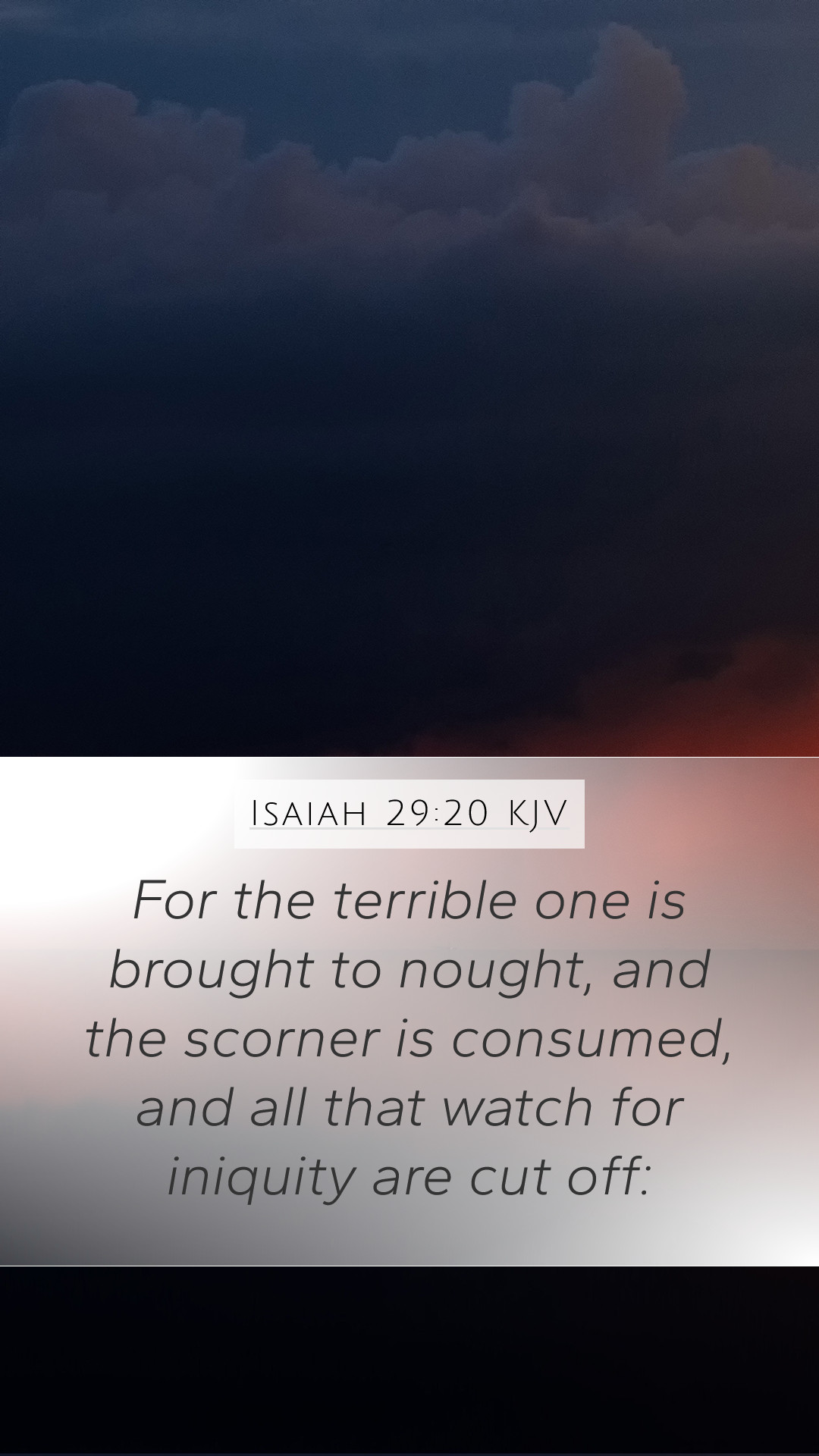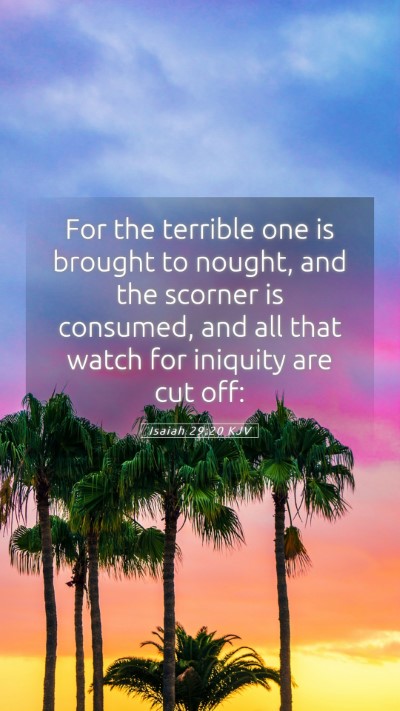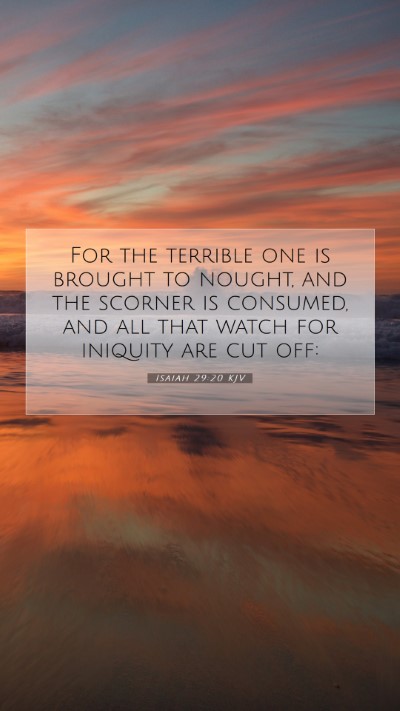Understanding Isaiah 29:20
Isaiah 29:20 reads:
"For the terrible one is brought to nothing, and the scorner is consumed, and all that watch for iniquity are cut off."
This verse is rich with meaning and significance, particularly concerning the fate of the wicked. Below, we provide an in-depth analysis based on insights from prominent public domain commentaries to deepen your Bible verse understanding.
Verse Context and Overview
Isaiah's prophecy speaks to God’s justice and the ultimate triumph over evil. In the preceding verses, the prophet illustrates the spiritual blindness of the people, warning them of the impending judgment. They displayed arrogance and mockery towards God’s revelations, often likening themselves to the wise and learned.
Commentary Insights
- Matthew Henry:
Henry emphasizes that the "terrible one" symbolizes those who pride themselves in their strength and wickedness. He notes that God’s judgment will flatten these boastful spirits, affirming that their malicious plans will ultimately fail. Therefore, this verse serves as a strong warning about the fate that awaits those who oppose God.
- Albert Barnes:
Barnes interprets the phrase "the terrible one" as referring to tyrants or powerful oppressors who think they can escape divine judgment. He points out that this prophetic assurance can instill confidence in God's people, who may feel marginalized due to the oppressive actions of the wicked.
- Adam Clarke:
Clarke elaborates on the fate of the "scorner," interpreting this as a reference to those who ridicule the righteous. He posits that the consumption of the scorner illustrates the internal decay and self-destruction that arises from mocking the truth. Thus, there’s a warning against the perils of arrogance and derision.
Key Themes and Messages
- Divine Justice:
The overarching theme of this verse highlights God's commitment to justice. The assurance that "the terrible one" will meet their end underscores the inevitability of divine retribution against unrighteousness.
- Hope for the Righteous:
Understanding this scripture provides comfort to believers, reminding them that God is aware of their struggles against the wicked. It reinforces the notion that loyalty to God will bear fruit in the face of adversity.
Cross References
- Psalm 37:9: "For evildoers shall be cut off..."
- Proverbs 11:21: "Though hand join in hand, the wicked shall not be unpunished..."
- Isaiah 51:7: "...do not fear the reproach of men, nor be afraid of their insults."
Application of Isaiah 29:20
This verse invites readers to consider the implications of their actions and attitudes. It serves as a cautionary tale about the arrogance often displayed by those in power and emphasizes the importance of humility and respect for divine authority. In a modern context:
- Reflect on how pride can lead to downfall both personally and societally.
- Encourage discussions in Bible study groups about the nature of justice and mercy in God’s Kingdom.
- Consider the importance of standing firm in faith while confronting societal injustices.
- Utilize online Bible study tools for deeper exploration into prophecies and their implications for today.
Conclusion
Isaiah 29:20 provides profound insights into God’s righteous judgment and the temporary nature of the triumphs of evil. By understanding this verse, believers can derive hope and assurance that God presides over justice. The interplay between divine justice and human arrogance is a powerful theme that resonates through scripture, encapsulating the importance of humility and reverence for God’s word. As we engage with these truths, the application of Scripture to our lives becomes not just an academic exercise but a pathway to spiritual growth and resilience.
For further exploration of Bible verse meanings, engage with the rich tapestry of scripture that continues to inspire and challenge adherents in their faith journeys.


